A Heritage of Hope
“Religion that God our Father accepts as pure and faultless is this: to look after orphans and widows in their distress and to keep oneself from being polluted by the world” (James 1:27 NIV).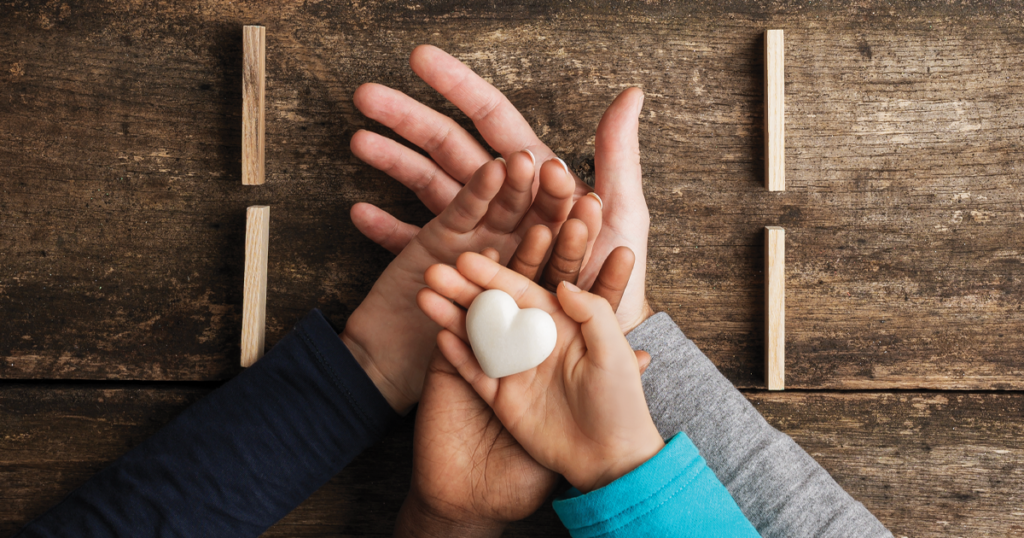
The Salvation Army has a long history of adoption, from running orphanages and foster homes to soldiers opening their own homes to the most vulnerable people in our society. This November, for National Adoption Month, we’re honored to share the stories of some of the Salvationist families across America who have taken James 1:27 to heart and changed their lives as a result. Join us in celebrating these expressions of God’s love, and keep these and other such families in your prayers as they continue to navigate the challenges and joys of adoption.
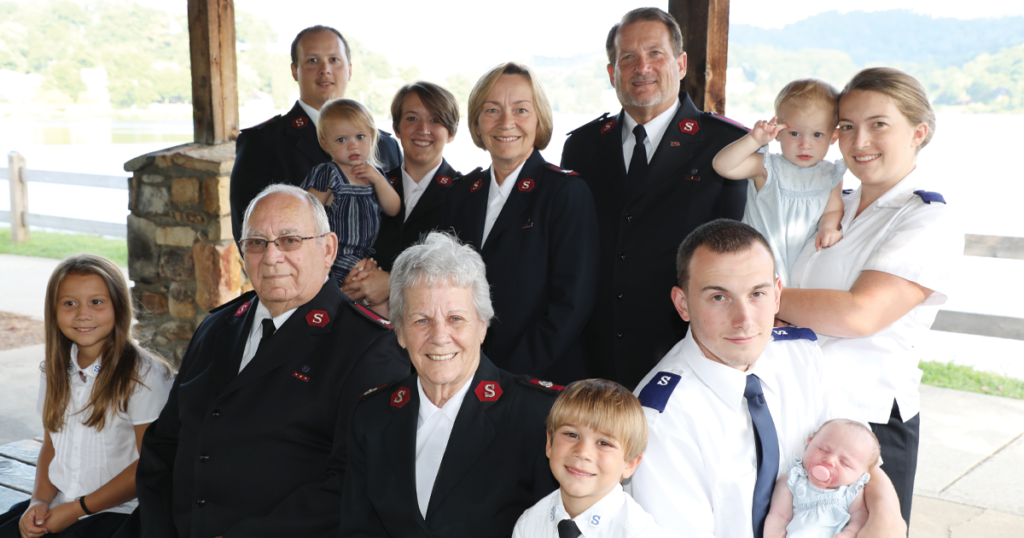
The Varneys
Adoption has become a loving solution for prospective parents and children desperately needing a nurturing home. But no one could have predicted the positive outcome for one Salvation Army family a long time ago.
“The Salvation Army in Huntington, WV operated a clinic for mothers and babies on the second and third floors of the old corps building,” explains Major David Varney. “There was an expectant mother dying of tuberculosis, who needed someone to take her baby.”
In an apparent effort to sensationalize the news, a local reporter wrote a story in the paper about how The Salvation Army was giving away a baby! This, even though the state of West Virginia was overseeing the “transaction,” and everything was completely legal and transparent.
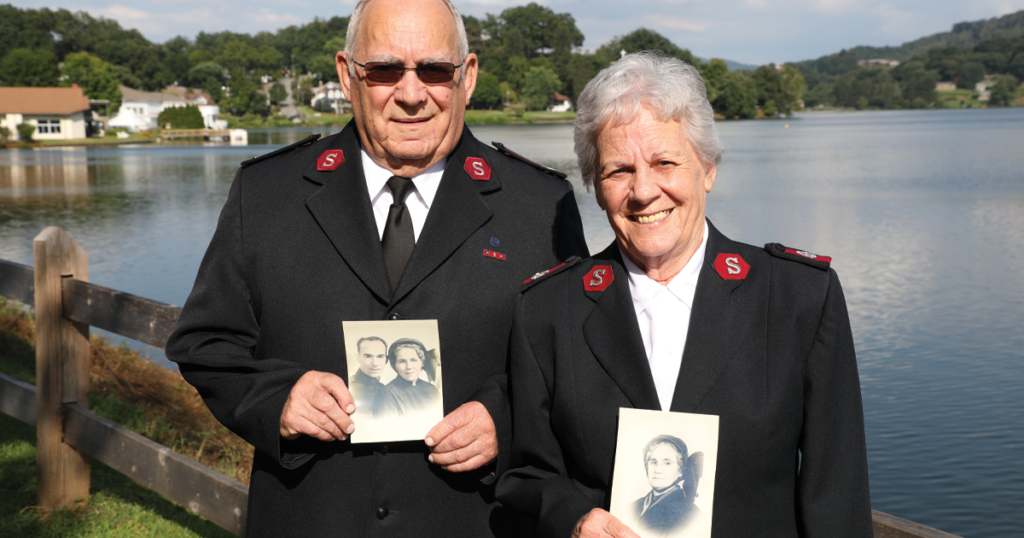
“Several women applied for the proposed adoption. Our grandmother, Della Morrow, was among them,” Major Jackie (Varney) Duncan says. The handful of women circled the pregnant lady’s deathbed, and from that group the lady chose Della.
“That baby became our Aunt Milly.”
The adoption into the Morrow family was completed, adding a sister for Virginia, who would later become mother to David and Jackie. The connection to the Huntington Corps grew from an invitation to the girls to attend Sunday School.
In fact, the entire family was won to the Army—a connection that lasts to this day.
“Our mother, Virginia, and Aunt Milly became totally involved in all the youth programs throughout their childhood and teen years,” Jackie explains. “Mother went to the Training College and was commissioned as a Salvation Army officer in the Trailblazers Session (1930).”
Another member of that session was Cadet Amos Varney, whom Virginia would later marry. Together, they served as corps officers until their retirement in the early 1970s with the rank of Brigadier—one of the last of that rank when it was eliminated from the Army’s ranking system.
From the Morrow/Varney union came a total of ten Salvation Army officers and soldiers. This in addition to the many candidates Brigadiers Amos and Virginia Varney sent to training from the 1930s to the 1970s.
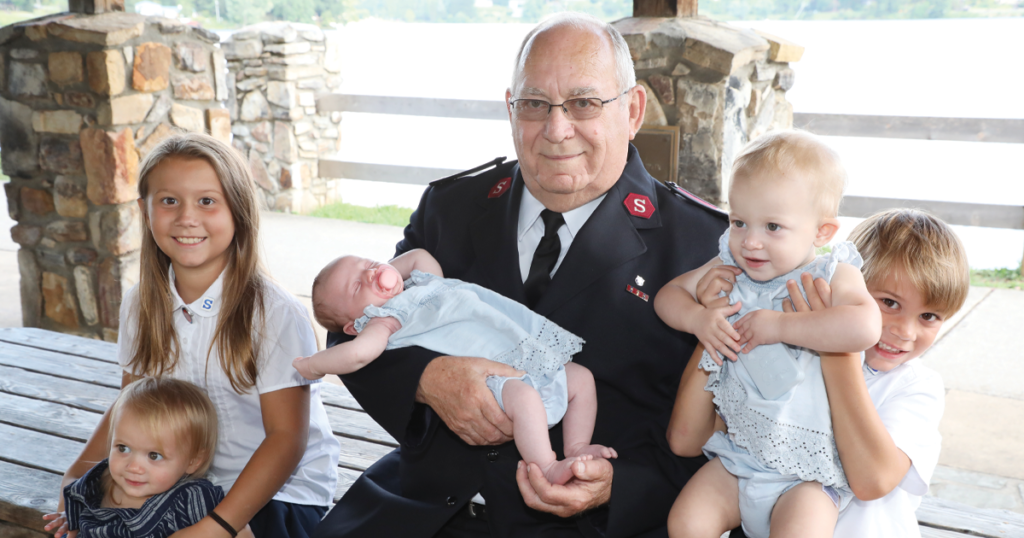
“From their first appointment in Martinsburg, West Virginia to their final appointment in Gadsden, AL, Mom and Dad sent cadets to training in every one of their assignments,” David says. In fact, there were so many, the family lost count.
“We have a very rich heritage,” Jackie adds.
None of this family’s contribution to the Southern Territory would have been possible, however, without the unique agreement between a dying mother and a couple agreeing to add to their family through adoption.
By Major Frank Duracher
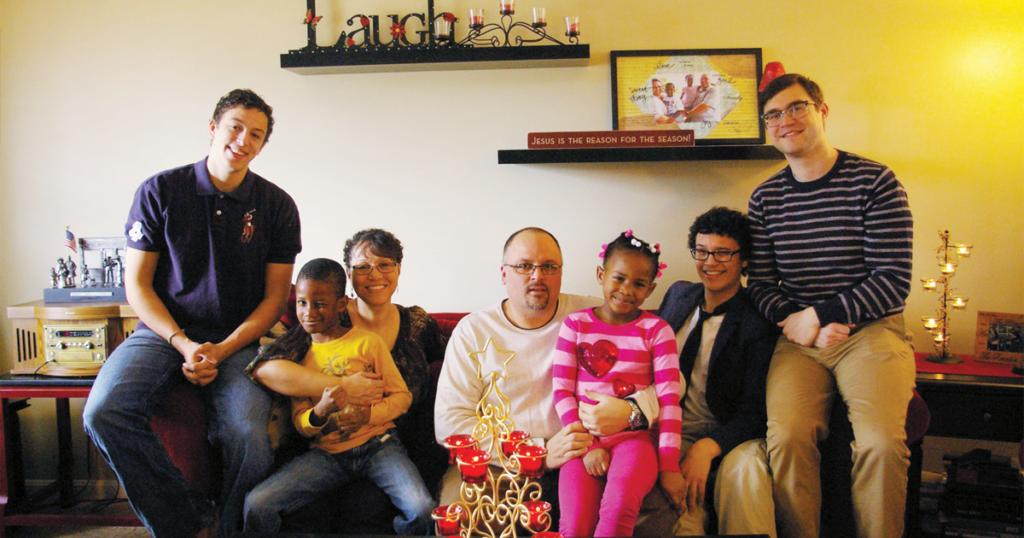
The Reardons
In 2011, our sons Wes and David went on a youth band trip to Jamaica. They were moved by their experiences at a children’s home there and asked that we consider adopting a child. We felt sure that this was something the Holy Spirit was guiding us to do. But we were middle-aged, our son Kyle was already grown and out of the house, and Wes and David were teens. We decided to look for a child who was not very young so that we wouldn’t be parenting into retirement. And we wanted to find a girl, since there were four males and one female in our family.
Because we are Salvation Army officers, the Army had to be on board with our decision. At the time, we were serving at National Headquarters, and then-National Commander Commissioner Bill Roberts heartily gave his approval. Another officer helped us find an adoption agency with offices near us and in the Caribbean. The agency told us that there was need in the country of St. Vincent and the Grenadines, so we agreed to adopt from there.
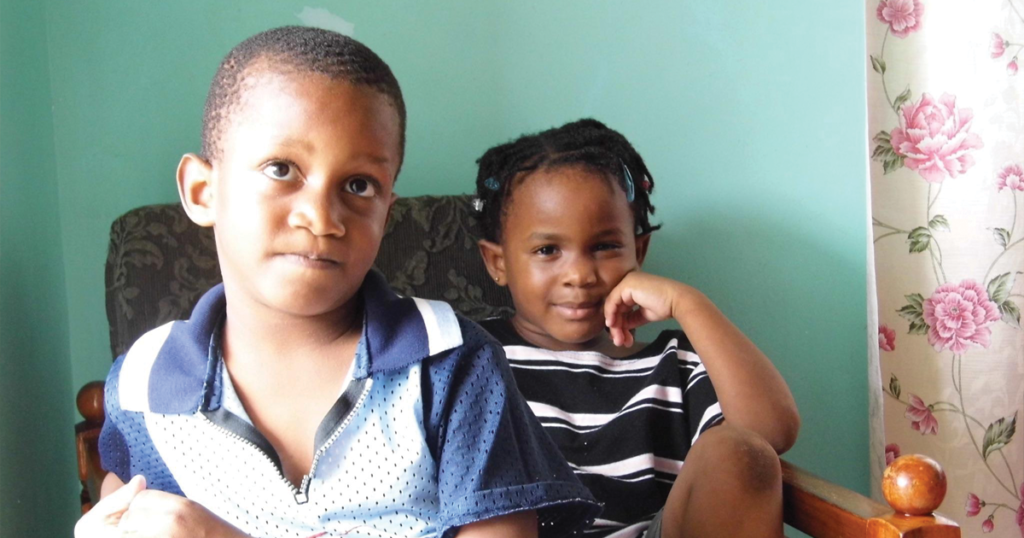
We started the process in December 2011 and soon found ourselves swimming in agency and governmental paperwork, fees, and inspections. One July day I lamented to my dear friend Carolyn Bailey about working so hard through the process with no indication yet of a child for our family. She said, “Let’s pray.” We prayed together, and within a few hours the agency called! But they had news we had not anticipated: “We found your little girl! She’s only three, though. And, she has a five-year-old brother. We will not separate them.”
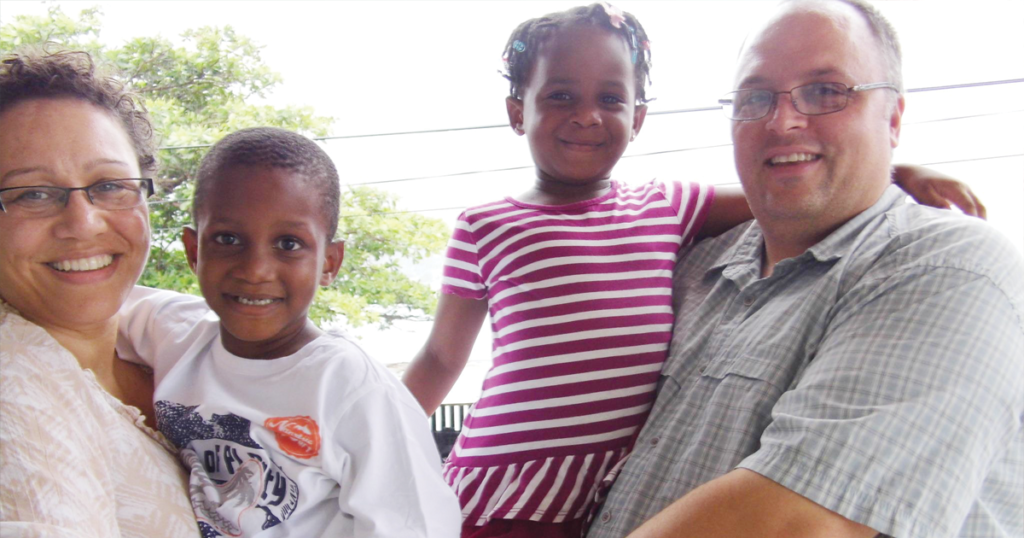
We were leery about taking on such young children. But all three of our sons rejoiced that they would have two small siblings. They talked about how important it was that the children wouldn’t feel like additional people, but full members of the family.
We flew to St. Vincent in August and met Raheim and Tia. They had recently been put in a foster care home, but physical and emotional issues testified to the rough life they had known before that. This wasn’t going to be all sunshine and roses. But we were in love with these kids.
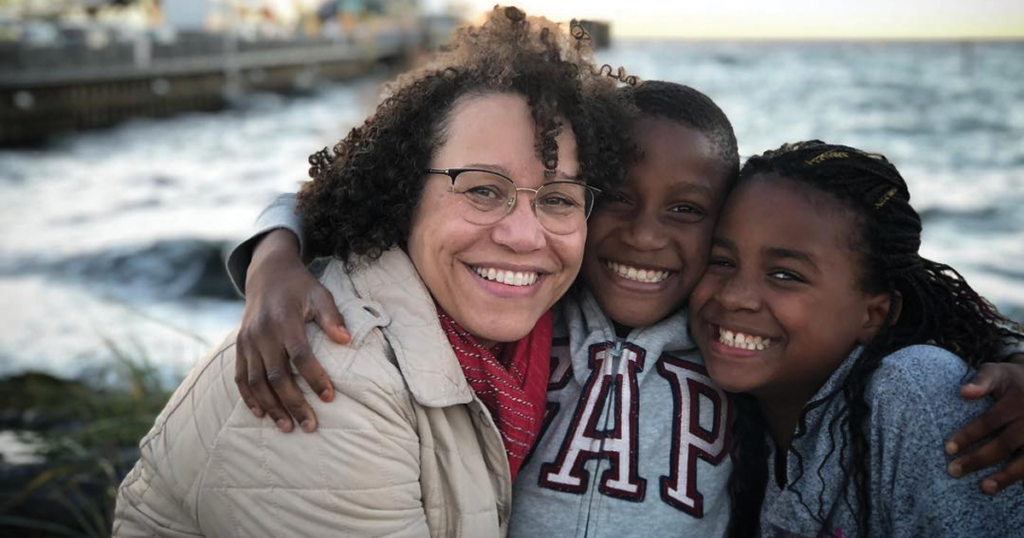
Overseas adoptions are quite costly. Many friends joyfully gave of their finances. Even the National Capital Band (of which we were part) passed the hat. But two weeks before we were to leave to get the children and make them ours, we were still $4,000 short. We knew God had a plan, but we wished He would hurry! A surprise phone call came from Major Jacqulyn Reckline one afternoon. She worked with The Salvation Army’s Women’s Auxiliary of DC, and they were going to make up the difference!
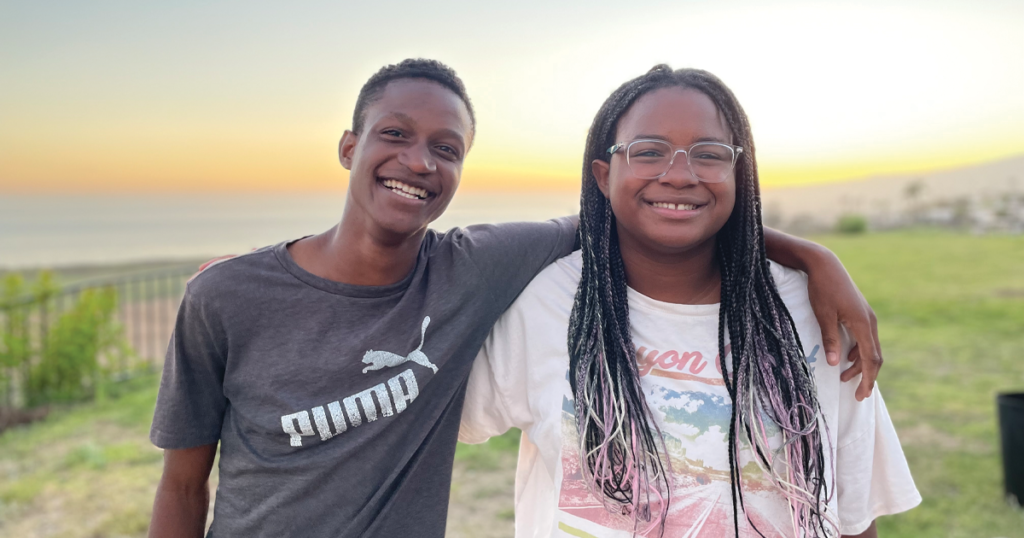
We brought Raheim and Tia home in December of 2012. They were six and four years old. It’s been almost ten years now, and none of us can imagine life without them. Though their older brothers (our sons) and their wives live far away now, they’ve maintained very close relationships with all. They are active in the Army and burgeoning with talent, humor, and sass. They are perfect.
About five months after the adoption, we were visiting the corps in Hickory, NC and there was a testimony time in Sunday school assembly. We nearly collapsed from shock when Raheim, the shiest person we had ever known, stood to say a word. He held himself proudly and spoke with conviction. “I want to thank God for my family.” To which we still say, “Amen.”
By Major Amy Reardon
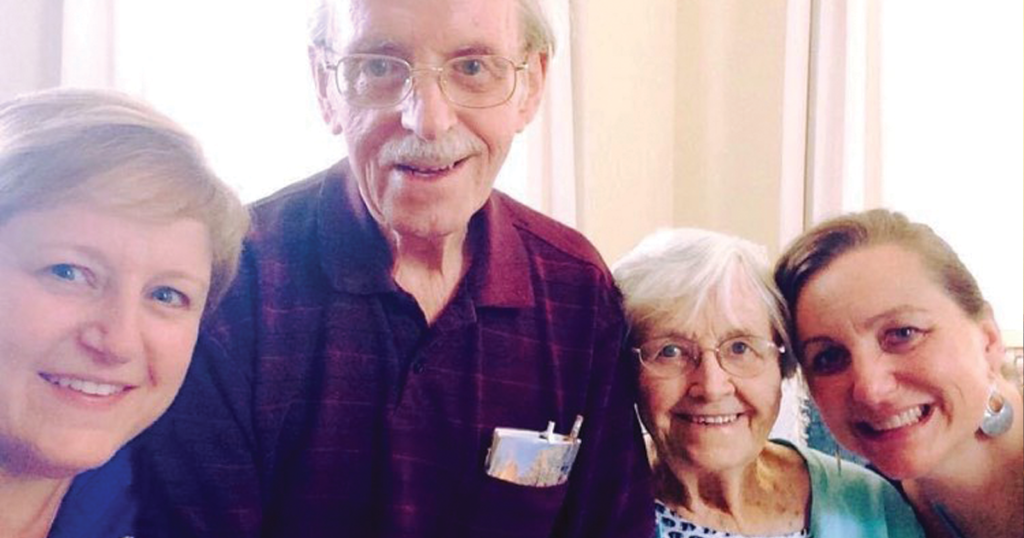
The Laxtons & Morrises
Long before I was a member of The Salvation Army, I came in through Army Social Services. My sister Judy and I always knew we were adopted from The Salvation Army’s adoption agency in New York City, which was functioning until recently. My parents, who were Salvationists, came to the United States from England in the mid-50s and landed in New York City. They couldn’t have children of their own, so when it came time to adopt, they decided to go through The Salvation Army. I was born in August 1965 and came into their family in February 1966, and my sister was adopted three years later.
I started to wonder about my birth parents during college. If I’m adopted, and somebody chose me, that meant somebody else didn’t choose me. I grappled with the feelings that came with this realization. I talked about this with my mother, who was very tender-hearted, and worked through it.
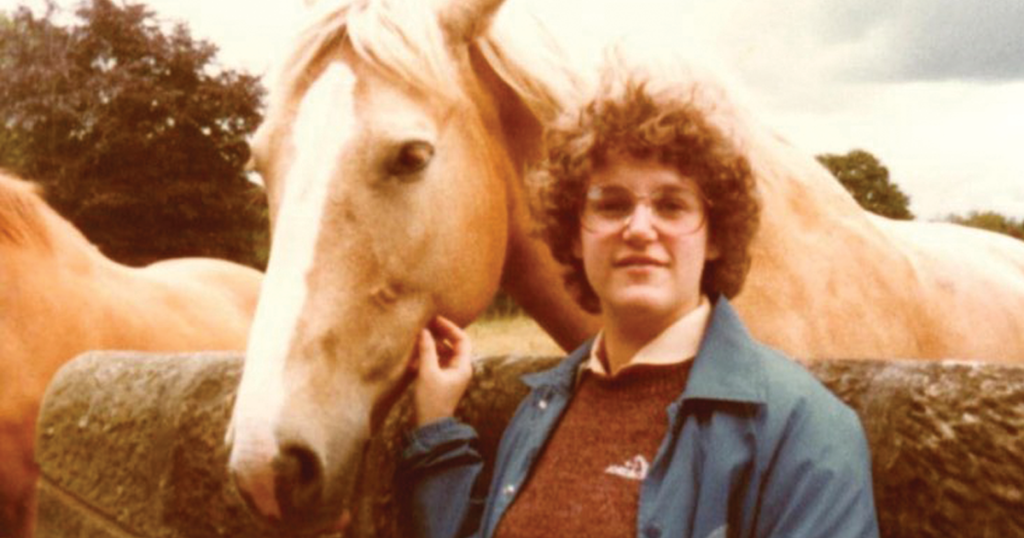
Years later, my mother visited me in Florida, and we were greeted at my corps by an officer who was the Social Services Secretary in New York when I was adopted. She likely signed my adoption papers. After my mother returned home, that officer reached out to me to say she could connect me to the Army’s adoption agency should I want to inquire about anything. My husband and I decided it would be useful to learn about health history, so I agreed and eventually received the form my birth mother had filled out when making the decision that she would not be able to raise me. I learned about her background: her religion, work, education, hair color. I found out that my biological father wasn’t in the picture at all, and that my mother was unable to care for me. It was more information than I ever imagined receiving, except for one important piece of information – her name.
Five years ago, both of my parents went to heaven. At that time, my very curious sister convinced me to do DNA testing. We discovered that she was half Western European and half Ashkenazi Jewish, and that I was Eastern European and half Ashkenazi Jewish. We bonded over our newfound heritage.
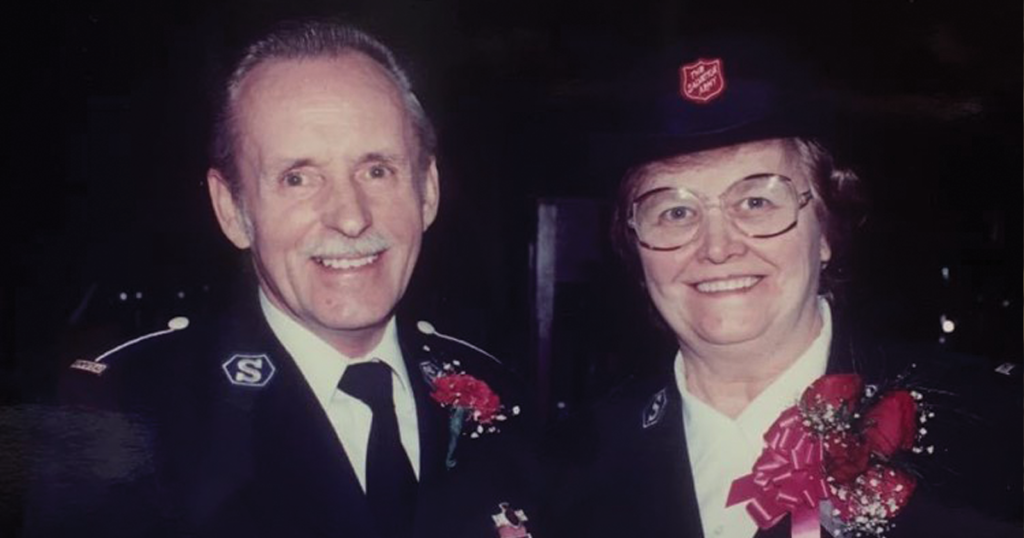
Judy, my sister, began her search for her biological family. At first, she could only find second and third cousins. After some time, she found one close relative whose connection she couldn’t make sense of, so Judy contacted a “DNA detective.” These are scientists or analysts who love to work on the triangulation of DNA and help people find their relatives, and they do it for free. The connection turned out to be her half-sister, who further connected her to a half-brother. She then learned that her father had passed away. It wasn’t until Judy was able to get her original birth certificate that the DNA detective could find Judy’s birth mother in Illinois. She met her mother in person, as well as another sister and niece, over the summer, and they got to worship together at the Tustin Ranch corps in California.
Judy pushed me to consult the DNA detective, but I was hesitant. I didn’t want to invade anyone’s privacy or open a can of worms. When we were appointed to Japan in April of 2021 but couldn’t move, I thought that maybe I was still in the U.S. for a reason. So, I began the process. I contacted Judy’s DNA detective, and he found my parents’ information in 24 hours. My mother was in Arkansas and my father was in Massachusetts. I was on my way to Arkansas to visit friends when I learned this. As soon as we arrived, I sent letters to my biological mother and my biological father.
I never heard back from my father. In my letter to my mother, I offered to meet with her while I was still in Arkansas. There was no response, and we returned home. The following week, I received a message from the postmaster in a small town in Arkansas informing me that no one lived at the address I had sent my letter to, but they could locate the recipient. I tried to call back and couldn’t reach them. The next day, the phone rang again from the same area code. They left a message that said, “This is Barbara Haas. If this is Wendy Morris, I would love to talk to you.”
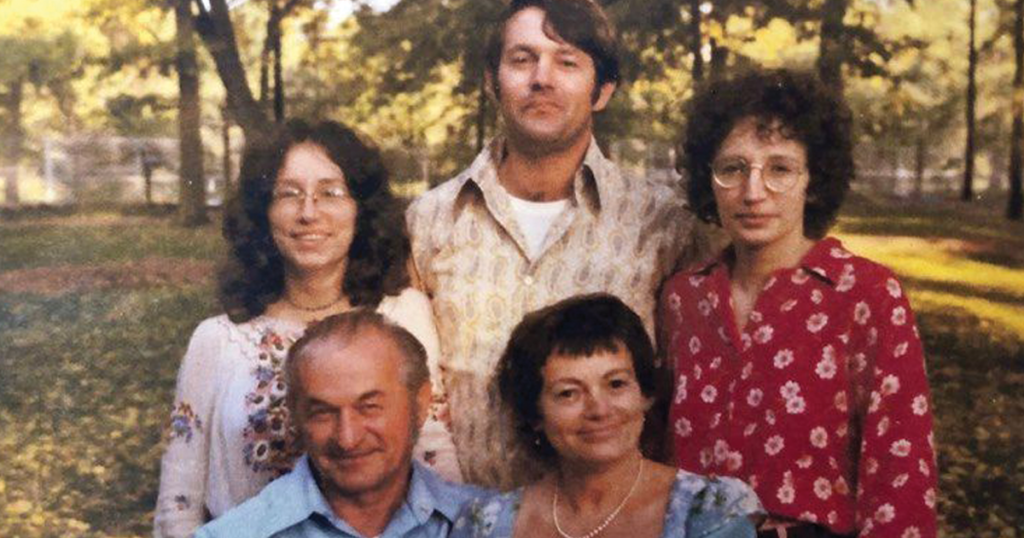
After I calmed down, I returned her call, and we had a wonderful conversation. We made plans for a visit, and on Christmas Day we made the cross-country trip to meet my biological mother. On December 26 of 2021, I entered this nursing residence, greeted by lovely nurses. Everybody knew what was happening and were all very excited, but they were trying to stay calm. When I walked into her room and met her, it was a wonderful moment. I was able to thank her. She said, “I didn’t do very much for you. I only did one thing.” But that was everything for me. I don’t think she fully grasped what I was saying, but she rescued my life.
To this day, I’m grateful that the Army provided help for two young women, my biological mother and Judy’s, who were hurting and curious about what options they had. And that the Army provided a way for me to be placed lovingly with a foster family for six months, and then carefully chose a family for me that has loved me all these years.
By Colonel Wendy Morris
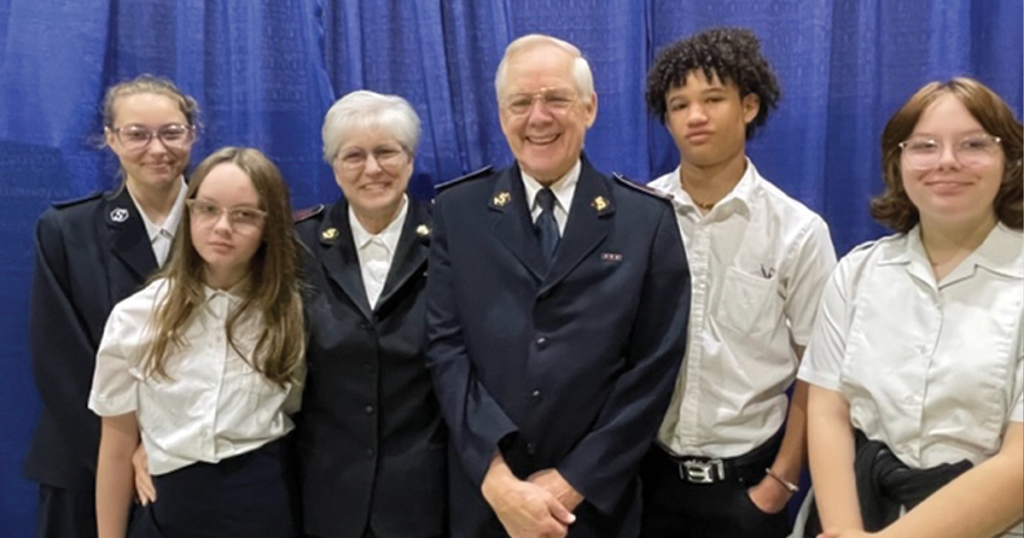
The Satterlees
When my mother and birth father divorced, he walked out of our lives, not contacting us or supporting us. My poor mother fought to keep our family together even in poverty. I can’t remember the number of times there was absolutely nothing to eat until some neighbor came over with some food they thought we might like to have. Most of our clothes were hand-me-downs. We constantly moved from place to place because we were evicted. I never knew when I came home if the water or electricity was going to be on. We seldom went anywhere or did anything outside our home. In time, we joined The Salvation Army as our church home, but we also received groceries many times from the Army. I’m not complaining – many people faced what we did, and we got through it.
When my mother remarried, it was into a wonderful family named Satterlee. When the subject came up about our stepfather becoming our adoptive father, my two brothers and I jumped at it. I clearly remember the adoption hearing when I was asked by the judge if adoption was what I wanted. How could I not? One father had abandoned us while another loved us and wanted us. Our extended Satterlee family has been as warm and nurturing as any could be.
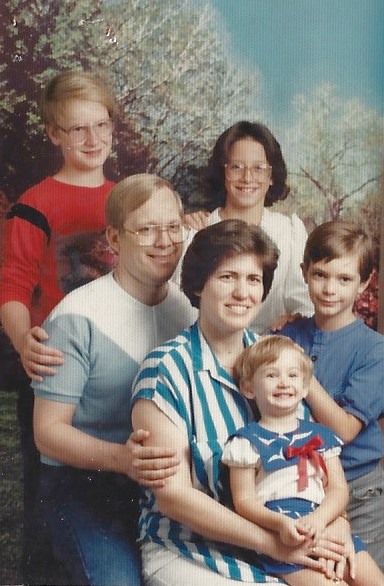
Our mother died when she was 44, having struggled through much of her life including numerous strokes and heart attacks. It was only after she died that my brothers and I found out that before any of us were born, she had had a baby while still a teen. The infant girl was adopted by a family. That was all we knew.
A few years later our aunt told us of a young lady named Melissa Montgomery who was trying to find us. She was that baby that had been placed for adoption. Unfortunately, our aunt could only give us a name, but nothing more since she misplaced the letter. It was never found. My brother Mark joined me in trying to find Melissa but our options for doing so in those days were very limited. We tried this and that because we knew that she was also looking for us.
In the meantime, my wife and I discovered that we were not able to have children biologically, so the only option to be a parent was adoption. Eventually Jay, Sharon, Jon and Anna were adopted into our family. Over the years I have heard insensitive people say things like, “I could never love a child that isn’t mine.” My answer is, “Then you don’t deserve to adopt any children.” I also bristle at those who call the birth parents the “real father” or the “real mother.” Real parents are the ones who dry the tears and hold and love and cherish the child placed with them, whether biologically or through adoption. I love my kids and if given the chance to have children biologically or through adoption, I wouldn’t change a thing.
Because of some unfortunate circumstances, five of our ten grandchildren came to live with us. We adopted them as well but because we want them to maintain a relationship with their parents (our children), we have them call us grandma and grandpa rather than mom or dad. Shannon, Jayme, Kayde and Cloey came first. Jayden joined us just a year ago. When I found we could not have biological children, I first thought that meant we’d never have children. Instead, we have been involved with raising nine.
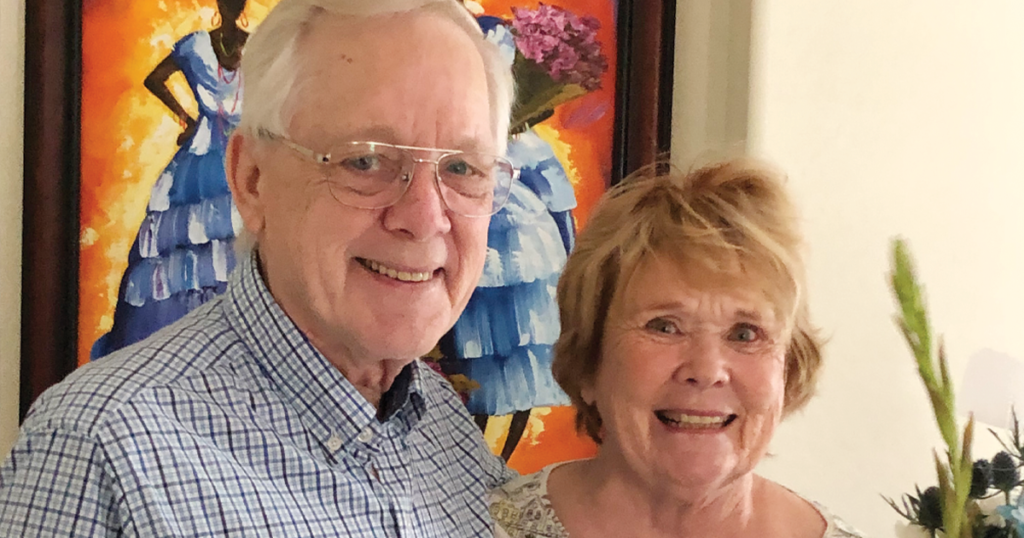
A few months ago, my brother Mark and I got an email from Melissa! Bravely she offered that if we didn’t want to have contact with her, she would understand. Not contact her? We were all over it, sharing information about the mother we had in common, pictures, all the rest. Melissa had wonderful parents who adopted her but like a lot of adopted children, she just had to know who else was out there.
This past summer, I met Melissa for the first time. Standing before me was a woman who was the build, the complexion, and had much of the appearance of our shared mother. She wanted to know everything about her birth mother and the life we lived while she was being raised in her own loving family. I thought we were there to answer her questions, help her find answers. But I found out that meeting her filled in a missing piece in me. After all these years of looking, just when it seemed this door was closed, it was suddenly flung open.
Not all reunion stories of biological siblings being unified end as well as ours does. But we are happy where this road has led. Melissa is my sister. Different parents but my sister, nonetheless.
The Lord’s ways are perfect.
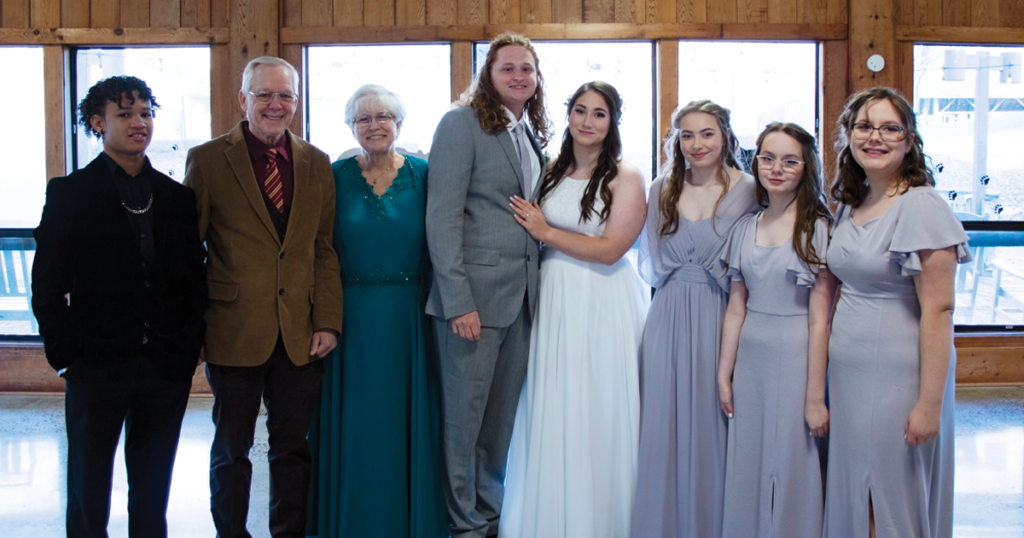
All this reminds us that as believers, we are all adopted. “So you have not received a spirit that makes you fearful slaves. Instead, you received God’s Spirit when he adopted you as his own children. Now we call him, ‘Abba, Father.’ For his Spirit joins with our spirit to affirm that we are God’s children. And since we are his children, we are his heirs. In fact, together with Christ we are heirs of God’s glory” (Romans 8:15-17 NLT, emphasis mine).
By Lt. Colonel Allen Satterlee







